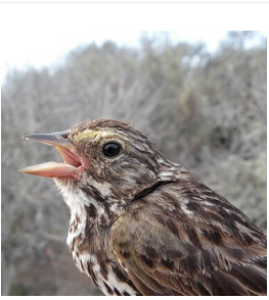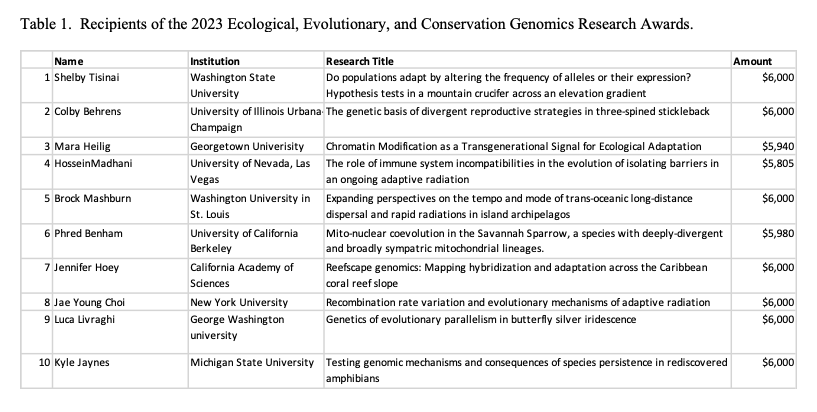
The AGA grants EECG Research Awards each year to graduate and post-doctoral researchers who are at a critical point in their research, where additional funds would allow them to conclude their research project and prepare it for publication.
28 students and post-docs applied for funding this year, and 10 received funding (Table 1). One recipient, Kyle Jaynes, received the first Robert K. Wayne Conservation Scholarship and Research Award. This special EECG award was established in memory of Robert Wayne to support graduate students whose research directly benefits a threatened species.
Photo of a savannah sparrow by Phred Benham


Check out our Editor's Choice article by Zimmerman et al., examining the great plains bison at American Prarie, while our cover this issue is courtesy of Winter et al., who lay out the best assembly yet of the beautiful Ural owl
AGA member have elected a new President and Councilors.
Jeff Good
Katie Lotterhos
Al Roca
Christine Edwards
Klaus-Peter Koepfli
Michael Russello
Nevé Baker
Apply now for an AGA
Any questions? Contact the Managing Editor at theaga@theaga.org.